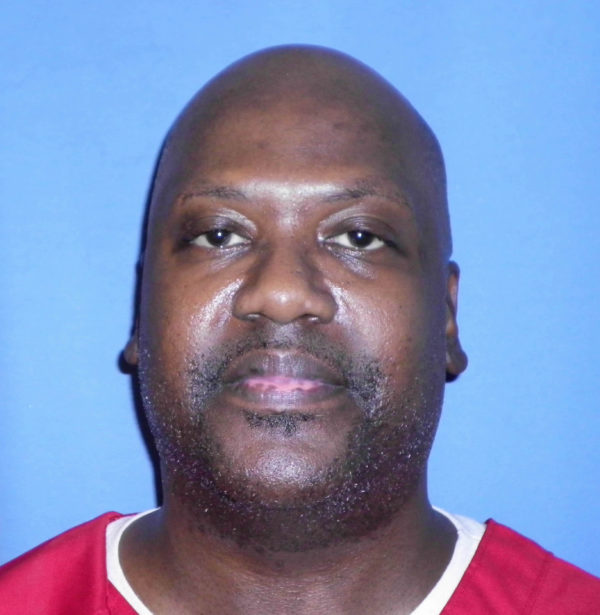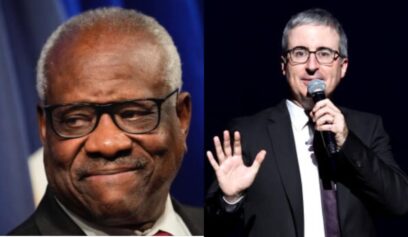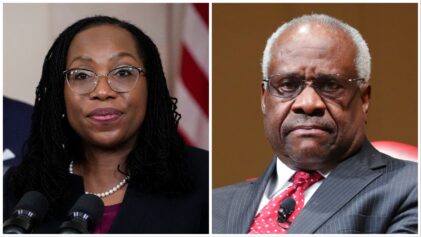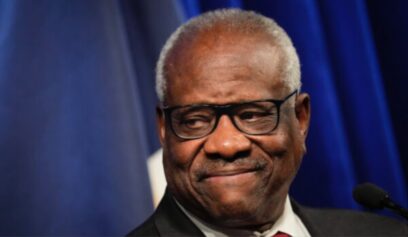The Supreme Court has thrown out the conviction of an African-American death row inmate in Mississippi who alleged prosecutors’ efforts to keep Black people off the jury cost him a fair trial.
According to NPR, Curtis Flowers has already been tried six times for the same crime by the same prosecutor, a man he’s said has deep-seated racial bias in jury selection. Friday’s decision now sets the stage for a remarkable seventh trial.

Curtis Flowers, 48, has been tried six times for murder, and claims he has been robbed a fair trial after African-Americans were repeatedly eliminated from his trial jury. (Mississippi Department of Corrections via AP)
Writing for the court’s 7-2 majority, Justice Brett Kavanaugh stated, “The numbers speak loudly. Over the course of the first four trials, there were 36 black prospective jurors against whom the State could have exercised a peremptory strike. The State tried to strike all 36.”
Kavanaugh added that “all [of] the relevant and facts circumstances taken together establish that the trial court committed clear error” in ruling that the exclusion of a Black prospective juror from Flowers’ sixth trial “wasn’t motivated in substantial part by discriminatory intent.”
Flowers, who’s spent the last 22 years on death row in Mississippi, has maintained his innocence throughout the case, despite prosecutors’ repeated attempts to convict him.
The Mississippi man was first convicted in 1997 for the 1996 execution-style murders of four people at Tardy Furniture store, where he once worked. Though he had no criminal history at the time, prosecutors painted Flowers as a “disgruntled” former employee who sought revenge against the owner after she fired him and docked his pay to cover the cost of merchandise he damaged.
Two subsequent convictions were overturned by the Mississippi Supreme Court due to prosecutorial misconduct and claims of racism, among other issues. Then, two deadlocked juries failed to reach unanimous verdicts.
Prosecutors finally snagged a conviction in 2010, and a jury — comprised of 11 white jurors and 1 African-American juror — sentenced him to death.
On Friday, the Supreme Court voted to overturn Flowers’ death sentence, however, arguing that prosecutor’s effort to keep Black people off the jury and the “dramatically disparate questioning of black and white prospective jurors” showed a pattern of discrimination.
“The state’s relentless, determined effort to rid the jury of black individuals strongly suggests that the state wanted to try Flowers before a jury with as few black jurors as possible, and ideally before an all-white jury,” Kavanaugh wrote.”The trial judge was aware of the history. But the judge did not sufficiently account for the history.”
Justice Clarence Thomas, the court’s sole Black justice, was one of two justices who opposed Friday’s ruling.
“The majority’s opinion is so manifestly incorrect that I must proceed to the merits,” Thomas began in his dissent. “Mr. Flowers presented no evidence whatsoever of purposeful race discrimination by the State in selecting the jury during the trial below.”
The dissenting justice added that the court’s decision, “distorts the record of this case, eviscerates our standard of review, [and] vacates four murder convictions because the state struck a juror who would have been stricken by any competent attorney.”
During the jury selection process, prosecutors and defendants have been able to weigh in on the makeup of jury by employing what are called “peremptory challenges” or strikes. As explained by ABC News, “the tool allows each side to eliminate a number of prospective jurors from the pool for any reason or no reason at all,” including a juror’s demeanor in the courtroom or suspicions they might vote against the defendant.
Advocates of the tools say it ensures fairness in jury selection, as it allows input from both sides. Those who oppose it argue that it threatens the guarantee of an impartial jury.
Though attorneys have broad discretion in using peremptory strikes, the Supreme Court forbids the challenges when used solely on the basis of race, sex or ethnicity.
“The Constitution forbids striking even a single prospective juror for a discriminatory purpose,” Kavanaugh noted.
The justice emphasized that the decision breaks “no new legal ground” but rather enforces existing precedent.


